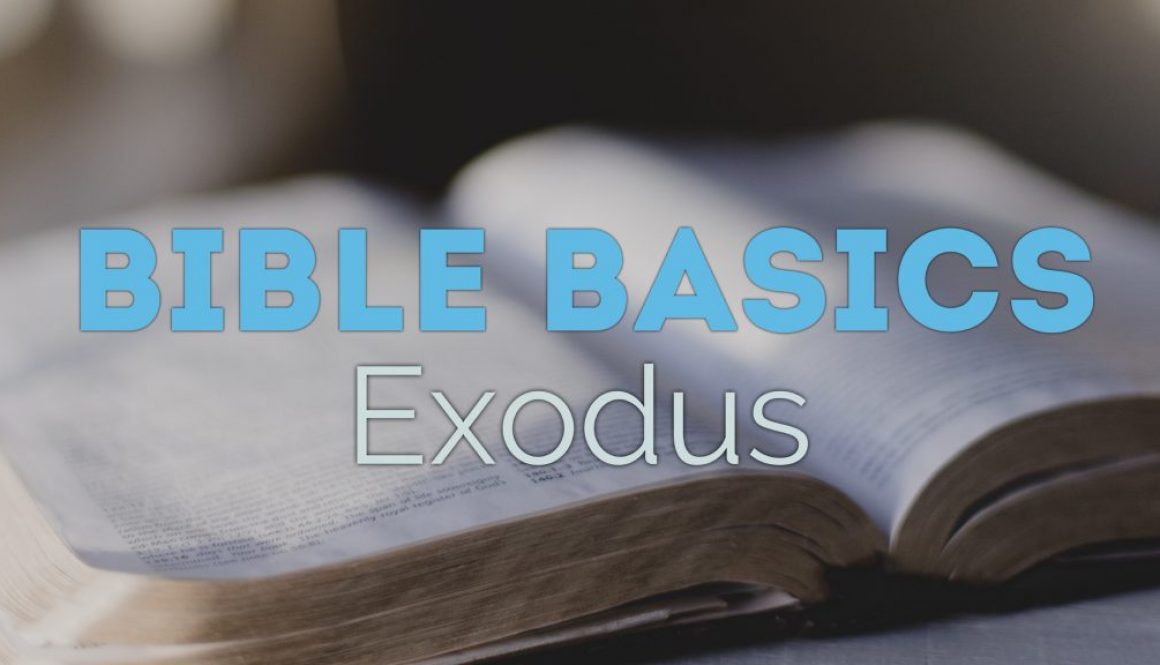Exodus
Author
Moses. (See Luke 24:27 and John 5:46.)
Date
The date of writing is unknown, although the most common view is that the Exodus event took place around 1446B.C. and that the Tabernacle was completed in 1444B.C.
Audience and Purpose
The book was written for future generations of God’s people, recalling the history of God’s people from their time in Egypt until the tabernacle was completed at Mount Sinai. The purpose was to reveal God as the Great Redeemer who will never abandon His people.
Major Themes
- Salvation, Deliverance and Redemption. The word “exodus” comes from a Greek word meaning “coming out” or “the way out.” The book describes how God delivered His people, Israel, from a life of slavery in Egypt. It becomes the model for how God would one day redeem humanity from our greater slavery to sin.
- Covenant. Exodus opens with God remembering His covenant with Abraham (Genesis 12:1-3), and His promise to return His people from captivity to the Promised Land (Genesis 15:13-14).
- Judgement and Grace. The plagues show God’s judgment on those who refuse to obey Him (Exodus 7:8-10:29). The Passover reveals God’s grace on those who may not be perfect, but who are humble enough to obey (Exodus 11:1-13:16).
Key Scriptures
- Exodus 3:4-6 — “When the Lord saw that (Moses) turned aside to see [the burning bush], God called to him out of the bush, ‘Moses, Moses!’ And he said, ‘Here I am.’ Then he said, ‘Do not come near; take your sandals off your feet, for the place on which you are standing is holy ground.’ And he said, ‘I am the God of your father, the God of Abraham, the God of Isaac, and the God of Jacob.’ And Moses hid his face, for he was afraid to look at God.”
- Exodus 3:13-14 — “Then Moses said to God, ‘If I come to the people of Israel and say to them, ‘The God of your fathers has sent me to you,’ and they ask me, ‘What is his name?’ what shall I say to them?’ God said to Moses, ‘I AM WHO I AM.’ And he said, “Say this to the people of Israel: ‘I AM has sent me to you.’”
- Exodus 20:1-3 — “And God spoke all these words, saying, ‘I am the Lord your God, who brought you out of the land of Egypt, out of the house of slavery. You shall have no other gods before me.’”
Outline
- Exodus 1:1-2:25 — God remembers His covenant.
- Exodus 3:1-4:17 — God Comes Down, Appoints a Deliverer.
- Exodus 4:18-15:21 — God Redeems His People
- Exodus 4:18-7:7 —Redemption through Promise
- Exodus 7:8-10:29 — Redemption through Plagues
- Exodus 11:1-13:16 — Redemption through Passover
- Exodus 13:17-15:21 — Redemption through Power
- Exodus 15:22-18:27 — God Leads
- Exodus 19:1-40:38 — God Instructs
- Exodus 19:1-20:17 — Legal Instructions
- Exodus 20:18-24:11 — Covenant Instructions
- Exodus 24:12-40:38 — Tabernacle Instructions
Gospel Summary
Before Jesus died on the cross in the Gospels, the story of Exodus was the greatest story of God’s redemption and deliverance to mankind. It paints a picture of hope for a greater exodus, when God would deliver/save His people from bondage to sin, death and the devil. The Exodus stories frame our own story of salvation in Christ. In Jesus, God remembers His covenant and comes down. Jesus becomes our Deliverer. The Holy Spirit is our pillar of cloud and fire, and we are the tabernacle of God’s presence.
© Anthony Scott Ingram 2020. All Rights Reserved.
Photo by Carolyn V on Unsplash
Unless otherwise indicated, all Scripture quotations are from The Holy Bible, English Standard Version®, copyright © 2001 by Crossway Bibles, a publishing ministry of Good News Publishers. Used by permission. All rights reserved.”
